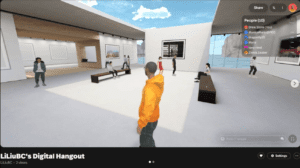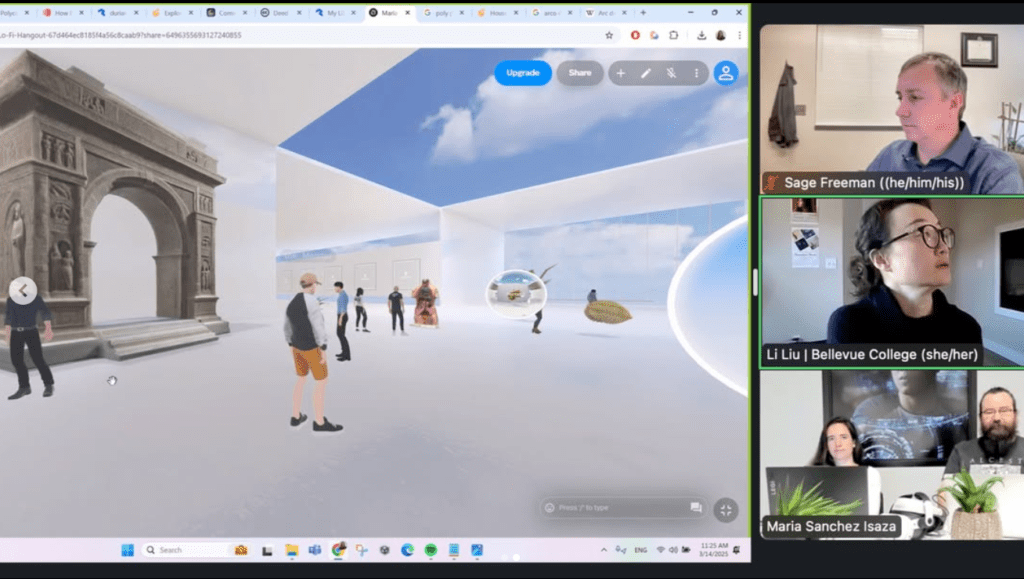
This March, the Bellevue College XR Lab launched the first sessions of the NWXR EDU “XR Tools for Teaching” workshop series, an initiative designed to introduce accessible XR tools to educators and students. Led by instructor Maria Sanchez-Isaza and hosted by James Riggall, the workshops provide hands-on learning experiences focused on building immersive virtual environments that support education, creativity, and collaboration.
Supported by the NWXR EDU Network, the series aims to make extended reality (XR) technologies approachable, highlighting tools that require minimal equipment and can be used directly from a web browser or smartphone.
Workshop 1: Introduction to Spatial.io – Create Your Own Virtual Space
March 7, 2025
The series began with a session introducing Spatial.io, a web-based platform that allows users to build and explore custom virtual spaces without the need for specialized VR hardware. Participants learned how to navigate the Spatial.io web editor, customize a 3D environment, and share their virtual spaces with others.
Key learning objectives included:
- Navigating and using Spatial.io’s web-based editing tools
- Customizing virtual environments through asset placement and design features
- Sharing created spaces with peers for collaboration and interaction
By the end of the session, attendees had successfully created their own personalized 3D spaces and gained foundational skills for working with web-based XR platforms.

Workshop 2: Polycam and 3D Assets for Your Virtual Space
March 14, 2025
Building on the first session, the second workshop introduced participants to Polycam, a mobile application for capturing and creating 3D models from real-world objects. The focus of the workshop was on enhancing Spatial.io spaces with custom and sourced 3D assets.
The session included:
- Overview of building or sourcing 3D assets for use in Spatial.io
- Demonstrations on downloading assets from websites such as Sketchfab and poly.pizza
- Step-by-step guidance on using Polycam to scan physical objects and integrate them into a virtual environment
- Introduction to AI-generated 3D models using tools like meshy.ai, including creating models from text or image prompts
Participants were guided through the technical steps of scanning, optimizing, and importing 3D models, while also learning best practices for achieving high-quality results, such as maintaining even lighting and targeting difficult angles when scanning objects.
To apply what they learned, attendees spent the final segment of the workshop updating their Spatial.io spaces with newly created or imported 3D objects and sharing screenshots of their work with the group.
Looking Ahead: Expanding XR Skills Across Disciplines
The NWXR EDU “XR Tools for Teaching” series continues with upcoming workshops, including an introduction to creating avatars using ReadyPlayer.me and sessions focused on integrating additional interactive elements into virtual spaces.
Workshops like these reflect the XR Lab’s broader mission to expand access to immersive technologies, equip the Bellevue College community with future-ready skills, and inspire new possibilities for education, collaboration, and creativity.
The XR Lab extends its sincere thanks to Maria Sanchez-Isaza and James Riggall for leading these initial sessions, and to all participants for their enthusiasm and commitment to exploring the future of XR in education.
Last Updated May 20, 2025
